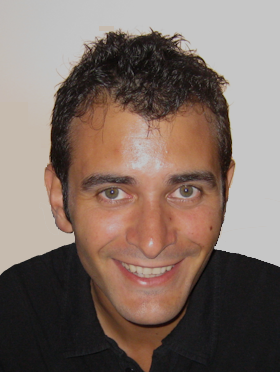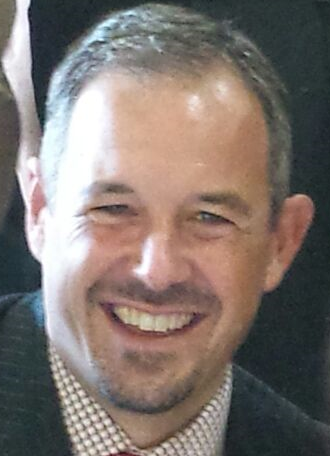IEEE Computational Intelligence Magazine Special Issue on Computational Intelligence Software (CFP)
Guest Editors
 |
Dr. Jesús Alcalá-Fdez |
 |
Dr. José María Alonso |
 |
Professor Oscar Cordón |
Aims and Scope
Computational Intelligence encompasses the theory, design, application, and development of biologically and linguistically motivated computational paradigms emphasizing neural networks, learning systems, evolutionary computation, fuzzy systems, and hybrid intelligent systems in which these paradigms are contained. These techniques and their hybridizations work in a cooperative way, taking profit from the main advantages of each individual technique, in order to solve lots of complex real-world problems for which other techniques are not well suited.
There are many software tools which have been developed for Computational Intelligence regarding both general purpose and specific application purpose in very varied research areas such as Education, Software Engineering, Biomedicine, System Modeling and Control, Decision-making, Risk Analysis, etc. Although some of them are commercially distributed, a large amount are also directly developed by the scientific community and made available as free and open source software. In fact, open source sharing of Computational Intelligence Software plays a very important role offering many advantages that will lead to the quicker detection of errors, innovative applications, the faster adoption of techniques in other disciplines and in industry, and so on.
Computational Intelligence Software has become nowadays a mature research field while still being a growing area with a significant number of publications and citations each year. Supported by the “Fuzzy Systems Software” Task Force of the IEEE CIS Fuzzy Systems Technical Committee (http://www.softcomputing.es/TF-FSS/), four special sessions on “Software for Soft Computing” have been held in some of the most outstanding IEEE conferences: FUZZ-IEEE 2007 (5 papers), WCCI 2012 (6 papers), FUZZ-IEEE 2013 (5 papers), and WCCI 2014 (11 papers). The number of both received and accepted submissions has been growing in each edition, as shown by the final number of accepted papers reported in brackets. Moreover, the trend of the number of contributions in JCR journals has also increased in recent years, improving the visibility of the developed proposals which are spreading towards new research areas.
The goal of this IEEE CIM Special Issue is to collect a set of papers showing the current state-of-the-art, original and recent research on Computational Intelligence Software in order to deal with new challenges on this topic. Namely, we expect papers dealing with free and open source Computational Intelligence software (including libraries, toolboxes, suites, and so on) regarding general or specific application purposes. The focus must be on software design issues (such as the application background, the architecture, user-friendly interfaces, etc.) rather than the theoretical description of algorithms implemented and used by the software.
Topics of Interest include (but are not limited to) software tools considering the use of Computational Intelligence techniques for
- Data Preprocessing.
- Data Mining and Knowledge Extraction.
- Modeling, Control, and Optimization.
- System Validation, Verification, and Exploratory Analysis.
- Knowledge Extraction and Linguistic/Graphical Representation.
- Visualization of Results.
- Languages for Computational Software.
- Interoperability.
- High Performance Computing (Map-Reduce, GPGPU, etc.).
- Applications.
- Surveys and/or Comparative Studies on the current CI software.
Submission Process
The IEEE CIM requires all prospective authors to submit their manuscripts in electronic format, as a PDF file. The maximum length for the manuscript is typically 25 pages in single column format with double-spacing, including figures and references. Before the manuscript is submitted, prospective authors should make sure that the PDF file is (1) printable, and (2) its first page contains the title, authors' names and the corresponding author's email address, abstract, and up to 5 keywords. Additional information about submission guidelines and information for authors is provided at the IEEE CIM website. Moreover, the software related to submitted papers must be hosted at the authors' website or at a public hosting, being accessible worldwide.
Submission should be made via https://easychair.org/conferences/?conf=ieeecimcisw2016. The special issue would include around 3-4 high quality papers.
Important Dates (for May 2016 Issue)
- 15th August, 2015: Submission of Manuscripts.
- 15th October, 2015: Notification of Review Results.
- 15th November, 2015: Submission of Revised Manuscripts.
- 15th December, 2015: Submission of Final Manuscripts.
- Publication: May 2016.
Biography of Guest Editors
 |
Dr. Jesús Alcalá-Fdez |
Jesús Alcalá-Fdez received the M.Sc. degree in Computer Science in 2002 and the Ph.D. degree in Computer Science in 2006, both from the University of Granada, Spain. From 2005 to 2007, he was with Department of Computer Science, University of Jaén. He is currently an Associate Professor in the Department of Computer Science and Artificial Intelligence at the University of Granada, where he is a Member of the Soft Computing and Intelligent Information Systems Research Group and the Research Centre for Information and Communications Technologies (CITIC-UGR).
He has published over 65 papers in international journals, book chapters and conferences, carrying an h index of 14 (source: Thomson Reuters's Web of Knowledge). He has worked on several research projects supported by the Spanish government, the Andalusia government and business. As edited activities, he has co-edited the IEEE Transactions on Fuzzy Systems Special Issue on “Genetic Fuzzy Systems: What's next?”, the Journal of Multiple-Valued Logic and Soft Computing Special Issue on “Soft Computing Techniques in Data Mining” and International Journal of Computational Intelligence Systems Special Issue on “Software Tools for Soft Computing”. He currently serves as associate editor of the IEEE Transactions on Fuzzy Systems and member of the editorial board of the Journal International Journal on Advances in Information Sciences and Service Sciences and the Scientific World Journal.
He was Publicity-Chair at GEFS 2010, GEFS 2011 and GEFS 2013, and Special Sessions & Workshops-Chair at ISDA 2011. He is chair of the “Fuzzy Systems Software” Task Force of the Fuzzy Systems Technical Committee (FSTC) at the IEEE Computational Intelligence Society (CIS) from March 2011. He has co-organized special sessions on “Software for Soft Computing” in each FUZZ-IEEE conference since 2012. He is the co-manager of development of KEEL software, together with Dr. Salvador García and Professor Luciano Sánchez. His current research interests include data mining, association rules, genetic fuzzy systems, multiobjective evolutionary algorithms, and data mining software.
 |
Dr. José María Alonso |
José María Alonso received the M.S. and Ph.D. degrees in Telecommunication Engineering, both from the Technical University of Madrid, Spain, in 2003 and 2007, respectively. From 2003 to 2005 he was involved in the ADVOCATE2 project, funded by the V Framework Program of the European Union. He worked as visiting research fellow in two European research centres, Cemagref, an agricultural and environmental engineering research centre (Montpellier, Languedoc-Roussillon, France) (25/09/06 - 25/10/06 and 19/09/05 - 19/12/05), and ECSC, European Centre for Soft Computing (Mieres, Asturias, Spain) (01/02/07 - 31/07/07 and 24/04/06 - 23/06/06). Later, he was postdoctoral researcher in the “Fundamentals of Soft Computing” Unit at the European Centre for Soft Computing (ECSC) from November 2007 to January 2012. In June 2010, he worked as visiting research fellow in the Università degli Studi di Bari (Dipartimento di Informatica). He was postdoctoral researcher funded by the Spanish Government under project JCI-2011-09839 in the Department of Electronics at the University of Alcala from February 2012 to October 2012. Since November 2012, he is associate researcher in the “Computing with Perceptions” Research Unit at the European Centre for Soft Computing.
He is vice-chair of the IEEE-CIS Task Force on Fuzzy Systems Software since 2011. He has co-organized special sessions on “Software for Soft Computing” in each FUZZ-IEEE conference since 2012. He is author of the free software GUAJE (Generating Understandable and Accurate fuzzy models in a Java Environment), a user-friendly portable tool designed and developed in order to make easier knowledge extraction and representation for fuzzy logic based systems. It is distributed as open source software under GPL license (more than 2600 downloads from 90 different countries since March 2012): http://sourceforge.net/projects/guajefuzzy/
He has published more than 60 papers in international journals, book chapters and in peer-review conferences. According to Google Scholar (accessed on September 12, 2014) he has h-index=11 and i10-index=12. His research interests include development of free software tools, fuzzy modeling for control and classification problems, assessing interpretability of fuzzy systems, knowledge extraction and representation, integration of expert and induced knowledge, sensory analysis, advance multi-sensor fusion, WiFi localization, and autonomous robotic navigation in complex environments. He has already acted as guess editor twice. He co-edited a special issue on “Interpretable Fuzzy Systems” in Information Science (Vol. 181:20, 2011) and a special issue on “Software Tools for Soft Computing” in the International Journal of Computational Intelligence Systems (Vol. 6:sup1, 2013).
 |
Professor Oscar Cordón |
Oscar Cordón (SM’11) is Full Professor with the University of Granada (UGR), Granada, Spain. He was the founder and leader of that University’s Virtual Learning Center between 2001 and 2005. From 2006 to 2011 he was one of the founding researchers of the European Centre for Soft Computing, Mieres, Spain, in his role of Principal Researcher, and he is still contracted as Scientific Consultant at the Centre.
He has been, for almost 20 years, an internationally recognized contributor to R&D Programs in fuzzy systems, evolutionary algorithms, and ant colony optimization. He has published more than 300 peer-reviewed scientific publications including a research book on genetic fuzzy systems and 79 JCR-SCI-indexed journal papers, advised 16 Ph.D. dissertations, coordinated 22 research projects and contracts, co-edited 10 special issues in international journals and 3 research books, and given 12 plenary talks in national and international conferences. By September 2014, his publications had received 2581 citations, carrying an h index of 26, and being included in the 1% of most-cited researchers in the world (source: Thomson Reuters's Web of Knowledge. 8270 citations and h index of 42 in ScholarGoogle). He also has an approved international patent on an intelligent system for forensic identification that is being commercialized in Mexico. He is Associate Editor of 11 international journals, including IEEE Transactions on Fuzzy Systems (recognized as the Outstanding Associate Editor in 2008), IEEE Computational Intelligence Magazine, IEEE Access, International Journal of Approximate Reasoning, WIREs ON Data Mining and Knowledge Discovery, and Journal of Multi-Valued Logic AND Soft Computing. He is a reviewer for more than 30 international journals.
Since 2004, he has taken many different representative positions with Eusflat and the IEEE Computational Intelligence Society (CIS), being an elected member of the IEEE CIS AdCom in term 2010–2012. He will be or has been General Chair of FuzzIEEE2016 (WCCI 2016), Co-chair of 4 international conferences (WSC7, GFS2005, GFS2010, MIBISOC2013), Program co-chair of IEEE CEC 2015 and IFSA-EUSFLAT 2015, IPC chair of IEEE EFS2006, GEFS2008 and ESTYLF2008, international co-chair of HIS2008, publicity co-chair of IEEE SCCI2009, finance co-chair of IFSA-EUSFLAT 2009, special session co-chair of 2010 IEEE CEC 2010 (WCCI 2010), special session chair of Fuzz-IEEE 2013, advisory board member of ISDA'09, evolutionary algorithms IPC area chair of IPMU2010, and Fuzzy image, speech, vision and signal processing IPC area chair of Fuzz-IEEE 2011.
Prof. Cordón received the UGR Young Researcher Career Award in 2004. In July 2010, he received the IEEE CIS Outstanding Early Career Award in its 2011 edition, the first such award conferred. In 2011, his developments on soft computing methods in forensic identification were recognized with the IFSA Award for Outstanding Applications of Fuzzy Technology and with the granting of the EUSFLAT Best Ph.D. Thesis Award to Dr. Ibañez's PhD dissertation, co-advised by Dr. Cordón.

